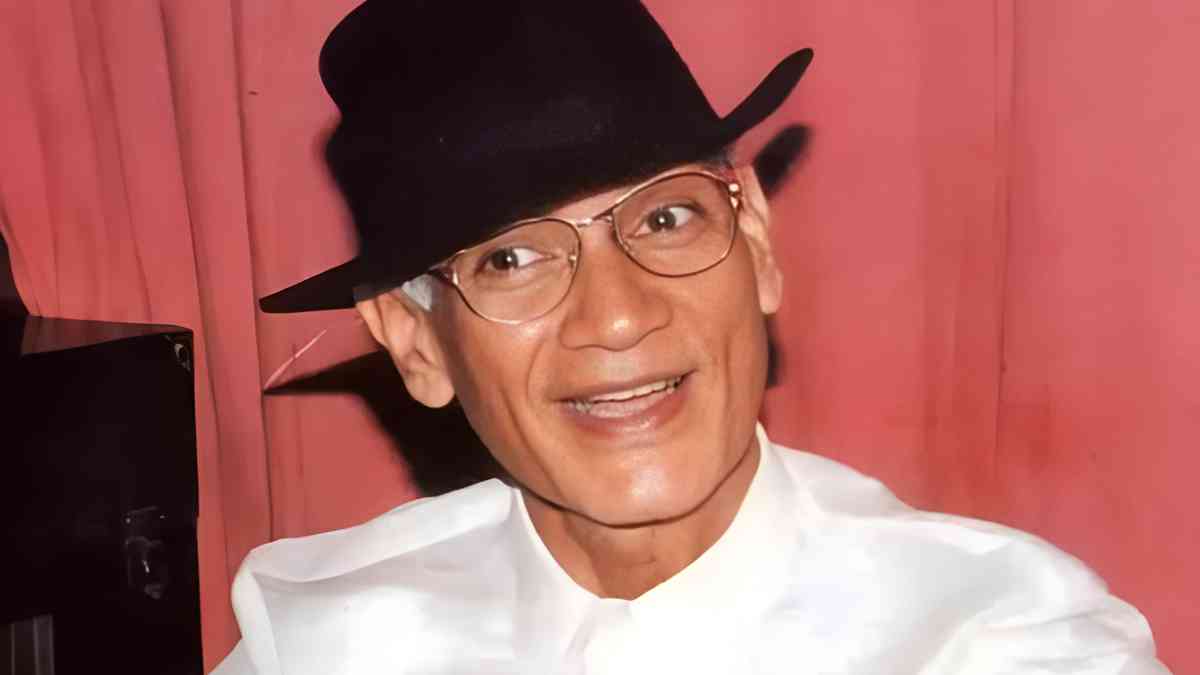“Taarif karun kya uski jisne tumhein banaya…” Though lyricist S.H. Bihari wrote this memorable line to celebrate Sharmila Tagore’s beauty in Kashmir Ki Kali (1964), it also aptly fits its music composer—OP Nayyar, celebrated as the “Badshaah of Rhythm.” Often underrated in comparison to his contemporaries, Nayyar’s body of work reflects sheer originality and a unique signature style. On his birth anniversary (January 16), we pay homage to the maverick who once bore the dubious tag of “plagiarist” but went on to silence critics with timeless melodies.
Born Omkar Prasad Nayyar in 1926 in Patiala, Punjab, young O.P. began his musical journey with All India Radio (Jalandhar). He got his first big break as a background score composer in Kaneez (1949), followed by full-fledged assignments in Aasmaan (1952) and Cham Chama Cham (1952). Unfortunately, these early films failed at the box office.
Adding insult to injury, Nayyar was criticized for his rhythmic, folk-inspired style, which detractors dismissed as imitations of Lahore-based maestro Ghulam Haider. Later, with Baaz (1953)—Guru Dutt’s debut as a director—he faced fresh allegations that his tunes were “lifted” from Western sources.
For many composers, such branding would have been career-ending. But for Nayyar, the criticism only sharpened his resolve.
Nayyar bounced back spectacularly with Guru Dutt’s Aar Paar (1954). The film’s music, especially “Babuji Dheere Chalna” (sung by Geeta Dutt), became a rage, and its popularity soared when it ranked third on Radio Ceylon’s Binaca Geet Mala, even surpassing Naushad’s Amar and Ghulam Mohammed’s Mirza Ghalib numbers.
A year later, Nayyar struck gold again with C.I.D. (1956), also for Guru Dutt’s production. The song “Aye Dil Hai Mushkil Jeena Yahan” (Mohammed Rafi, Geeta Dutt) became a street anthem and clinched the top spot on Binaca Geet Mala, dislodging even the reigning champions Shankar–Jaikishan.
From here, there was no looking back.
With his foot-tapping Punjabi folk rhythms, innovative use of western instruments, and brilliant collaborations with singers like Geeta Dutt, Mohammed Rafi, and later Asha Bhosle, O.P. Nayyar carved a distinct space in Hindi film music.
Hits like “Yeh Desh Hai Veer Jawanon Ka” (Naya Daur, 1957), “Mera Naam Chin Chin Chu” (Howrah Bridge, 1958), and “Udein Jab Jab Zulfein Teri” (Naya Daur, 1957) cemented his reputation as a composer who could blend melody with irresistible rhythm.
By the late 1950s and 60s, the man once dismissed as a plagiarist had become one of the most bankable and original music directors of his time.
Though he never worked with Lata Mangeshkar (famously sticking to his resolve), Nayyar’s contribution to the Golden Era of Hindi cinema remains unparalleled. His music still resonates on radio waves and playlists, proving that true artistry always silences criticism.
O.P. Nayyar cleaned his tag not with words, but with music—music that continues to make India sway.

